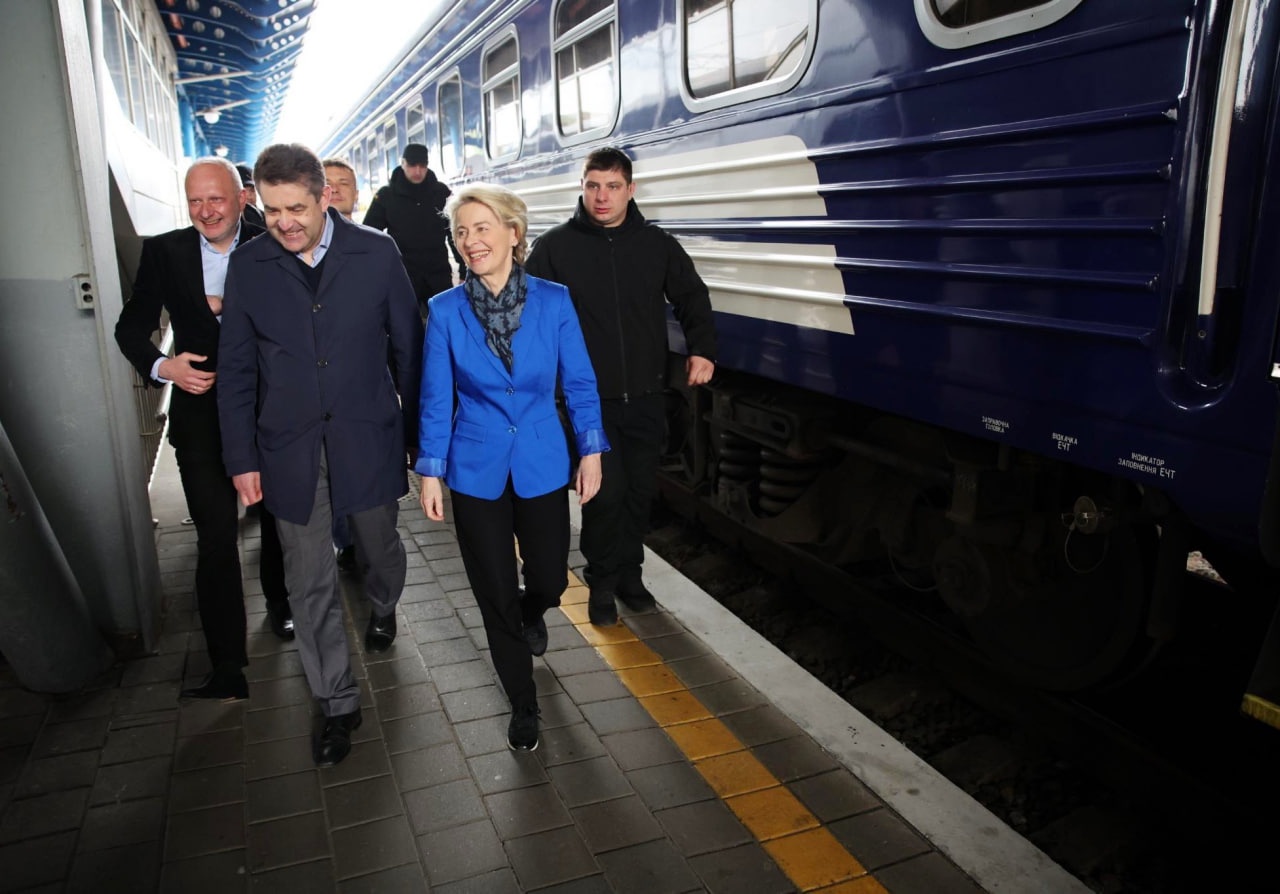On September 20, President of the European Commission Ursula von der Leyen arrived in Kyiv for an important visit. This is her eighth trip to the Ukrainian capital during the war, and this time the main focus was on preparing for the upcoming winter. As Russia continues to shell Ukraine’s energy infrastructure, this topic became a priority in discussions between the EU and Ukrainian representatives.
Main themes of the visit
As reported by “Voice of America,” Ursula von der Leyen’s visit was dedicated to several important issues:
- Preparation for winter amidst Russian aggression;
- Enhancement of defense support;
- Integration of Ukraine into the European Union;
- Potential multibillion-dollar loans from the Group of Seven, which plan to provide Ukraine using frozen Russian assets.
In her address, the President of the European Commission emphasized that the EU aims to ensure that Ukrainians have warmth and energy during the winter period, despite Russia’s attempts to destroy critical infrastructure.
Main issue
The winter period is extremely challenging for Ukraine, as Russian missile strikes are constantly targeting power plants and other elements of the energy system. According to EU estimates, the scale of the destruction is equivalent to the energy capacities of three Baltic states. Therefore, von der Leyen announced the allocation of 160 million euros, which will be directed to Ukraine’s urgent humanitarian needs for the winter.
Prior to her visit to Kyiv, Ursula von der Leyen stressed that one of the main tasks of the EU is to assist in the restoration of Ukraine’s energy system, making it more resilient and capable of withstanding future challenges.
EU’s Three Main Action Priorities
The President of the European Commission outlined a clear plan of assistance for Ukraine, which includes three key steps:
- Repair – restoration of damaged energy infrastructure, including power plants affected by attacks.
- Connection – export of electricity from EU countries to Ukraine to compensate for power shortages.
- Stabilization – decentralization of electricity production in Ukraine and transition to using renewable energy sources.
This approach will not only solve urgent problems but also make Ukraine’s energy system more resilient to future attacks.
Why It Matters
Ukraine needs 17 gigawatts of capacity for this winter to meet the basic needs of its citizens. The majority of this infrastructure was destroyed during Russia’s heavy shelling. Therefore, support from the EU and the international community is critically important.
Specifically, the EU has already allocated funds for purchasing generators and continues to develop projects aimed at assisting Ukraine in recovery. One of the promising directions is the decentralization of the energy system, which involves establishing local sources of electricity based on renewable technologies. This will not only help Ukraine withstand the conditions of war but also enhance the country’s resilience to energy crises in the future.
Global Solutions
In addition to energy assistance, the European Union is also actively working on defense issues. Ongoing military support from EU member states, including the provision of arms, military training, and intelligence sharing, is a crucial element of supporting Ukraine on the front lines.
Furthermore, Ukraine’s integration into the European Union remains a strategic direction. Although it is a long road, the EU continues to work towards facilitating this process and making it as swift as possible after the war is over. Support for Ukraine in this context involves not only financial aid but also political backing on the international stage.
How can Ukrainians prepare for winter?
Every Ukrainian can contribute to conserving energy this winter. It is important to use resources wisely, support local energy-saving initiatives, and participate in volunteer programs aimed at helping those most affected by the war.
Ursula von der Leyen’s visit to Kyiv underscores the importance of winter readiness in times of war. The European Union provides multidimensional assistance to Ukraine, ranging from restoring energy infrastructure to military and political support. The coming months will be crucial, and international support plays a key role in enabling Ukraine to withstand all challenges and continue the fight for its independence and territorial integrity.


